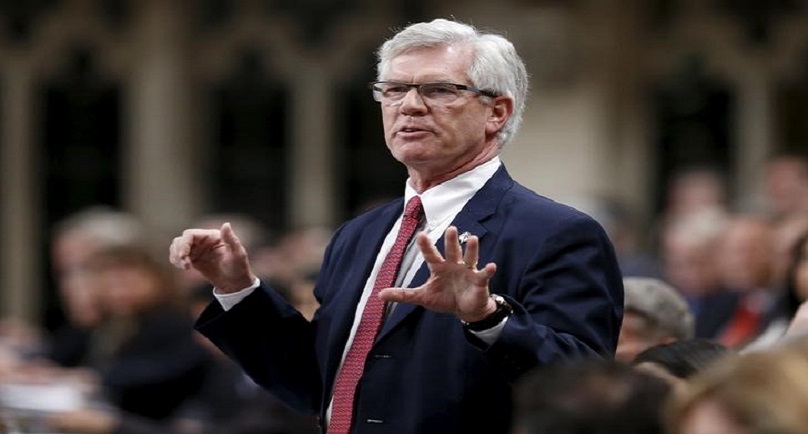Image: Canada’s Natural Resources Minister Jim Carr speaks during Question Period in the House of Commons on Parliament Hill in Ottawa, Canada, December 9, 2015. REUTERS/Chris Wattie
By Randall Palmer and Leah Schnurr
OTTAWA (Reuters) – Canada announced new interim rules on Wednesday for environmental reviews that will impose major delays on two projects – TransCanada Corp’s Energy East pipeline and Kinder Morgan Inc’s expansion of its Trans Mountain pipeline.
The Liberal government issued the rules on the grounds that public trust needed to be restored in the process for assessing and approving big energy projects.
Proponents say that after U.S. President Barack Obama’s denial of the Keystone XL pipeline, the all-Canadian projects are needed so the country’s oil can reach its east and west coasts and fetch higher prices abroad.
“The principles we are announcing today will allow the government to make better evidence-based decisions on major projects,” Environment Minister Catherine McKenna told a news conference to unveil the measures.
The interim rules are designed to take greater account of environmental impacts and indigenous groups’ points of view for the two pipelines, which are opposed by environmentalists and some communities but backed by industry.
The government said no existing project would be required to go back to square one.
But the rules will push back the deadline for the government to decide on the Trans Mountain Pipeline to December 2016 from August, signaling that the review by the National Energy Board regulator will still be done by May.
Ottawa also extended the total period for the NEB review and subsequent government decision of the Energy East pipeline to 27 months from the currently mandated 18 months.
The clock will begin ticking when the NEB starts the hearing process.
The government also announced a set of interim rules, including assessing greenhouse gas emissions, for all major projects, including LNG terminals.
The Liberal government, which came to power last year, has already effectively closed the door on one major pipeline project, Enbridge Inc’s Northern Gateway, with plans for a moratorium on oil tanker traffic along the northern coast of British Columbia.
Environmentalists oppose the pipelines on the grounds that they make it easier to send oil to market and thereby increase emissions of carbon dioxide.
Political and business leaders in the energy-producing provinces of Alberta and Saskatchewan counter that pipelines are safe and that resources are an important source of income for Canada.
(Editing by G Crosse and Peter Cooney)
Copyright 2015 Thomson Reuters. Click for Restrictions.


